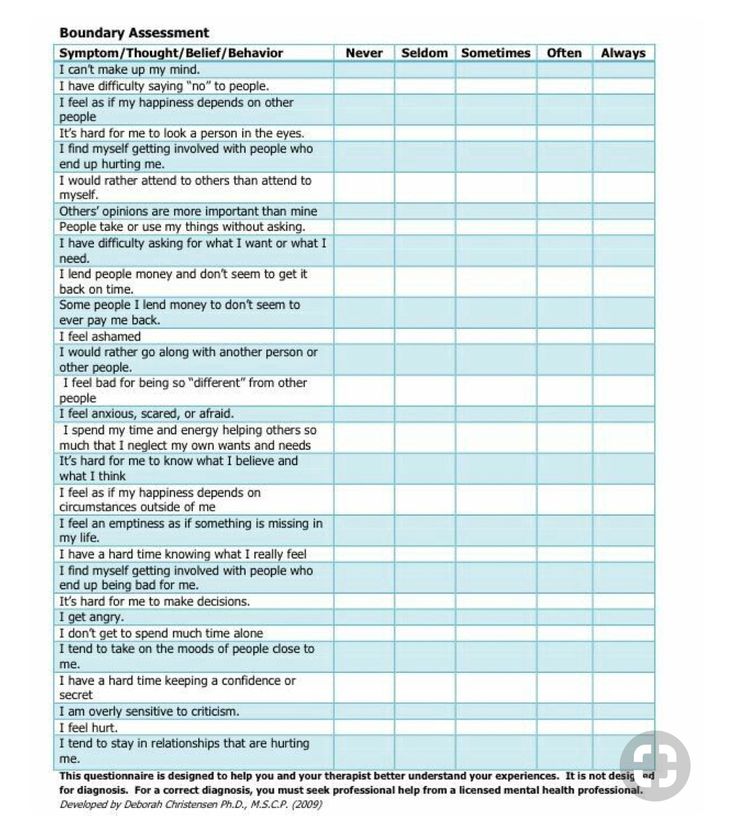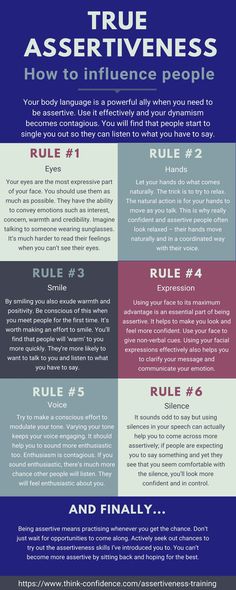Help in hard times
Surviving Tough Times by Building Resilience
Experiencing hardship and adversity
Lately, the world seems to be lurching from one crisis to another. We’ve experienced a global pandemic, dramatic changes to how we conduct our daily lives, economic uncertainty, and political and social turmoil, as well as an array of natural disasters. Then there are personal traumas that people are also dealing with, such as the loss of a loved one, declining health, unemployment, divorce, violent crime, or tragic accidents. For many us, this is a time of unprecedented struggle and upheaval.
Whether the source of disruption in your life is a global emergency or a personal tragedy—or both—living through difficult times can take a heavy toll on your mood, health, and outlook. It can leave you feeling helpless and overwhelmed by stress and anxiety. You may be painfully grieving all that you’ve lost, flooded by a slew of difficult, conflicting emotions, or uncertain about how to move on with your life.
You may even feel that your life is totally out of control and you’re powerless to affect whatever may happen next.
While there’s no way to avoid sorrow, adversity, or distress in life, there are ways to help smooth the rough waters and regain a sense of control. Resilience is the ability to cope with the loss, change, and trauma that have been inevitable parts of life even before these extraordinary times. Building resilience can help you better adapt to life-changing events, cope with turbulent times, and bounce back from hardship and tragedy.
The role of resilience in times of crisis
Why do some people seem to be better able to cope in these troubling times than others? While everyone’s situation is different, it is true that people with resilience tend to have a higher tolerance for the emotional distress generated by hard times. The more resilient you are, the better you’re able to tolerate the feelings of stress, anxiety, and sadness that accompany trauma and adversity—and find a way to rebound from setbacks.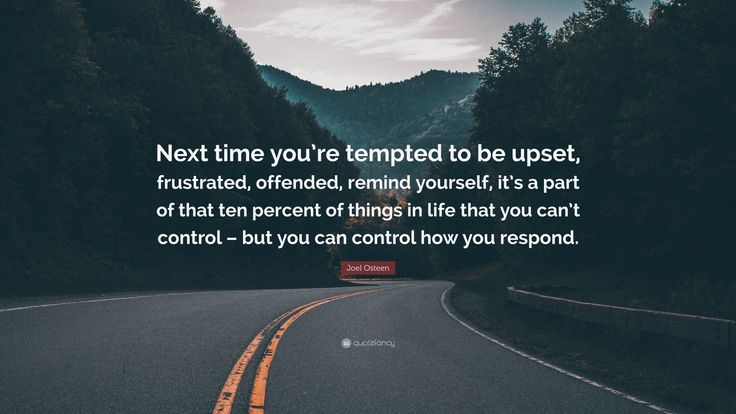
[Read: How to Cope with Traumatic Events]
We all go through bad times, we all experience disappointment, loss, and change, and we all feel sad, anxious, and stressed at various times in our lives. But building resilience can help you to maintain a positive outlook, face an uncertain future with less fear, and get through even the darkest days.
Speak to a Licensed Therapist
The world's largest therapy service. 100% online. Get matched with a professional, licensed, and vetted therapist in less than 48 hours.
Get 20% off
Professional online therapy and tools based on proven CBT strategies. Get instant help, along with your own personalized therapy toolbox.
Get 20% off
Affiliate Disclosure
Building resilience
If you’re more sensitive to emotional distress and are finding it difficult to cope with hardship or adversity, it’s important not to think of it as some kind of character flaw. Resilience isn’t a macho quality and it isn’t fixed; it’s an ongoing process that requires effort to build and maintain over time.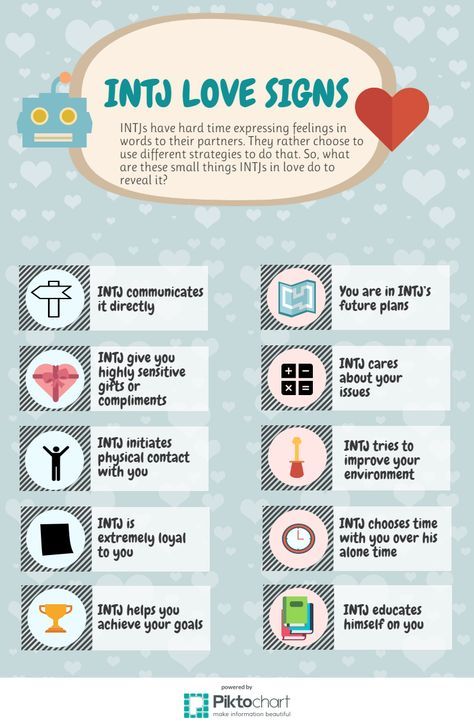
Unless you’ve faced adversity in your life before, it’s unlikely you’ve had the need or opportunity to develop resilience. Drawing on past experiences can help you cope with the challenges you’re facing today. Even if you’ve struggled to cope with adversity in the past, you may at least be able to recognize some of the ways of coping that DON’T help, such as trying to numb your feelings with drugs or alcohol.
While it’s often difficult to imagine anything good coming out of traumatic experiences, building resilience can help you find any positives in the difficulties you’ve faced. Surviving hardships can teach you important things about yourself and the world around you, strengthen your resolve, deepen your empathy, and in time enable you to evolve and grow as a human being.
Building resilience can also help you to:
- Stay focused, flexible, and productive, in both good and bad times.
- Feel less afraid of new experiences or an uncertain future.
- Manage and tolerate strong emotions outside your comfort zone, even those you’d rather avoid like anger or despair.
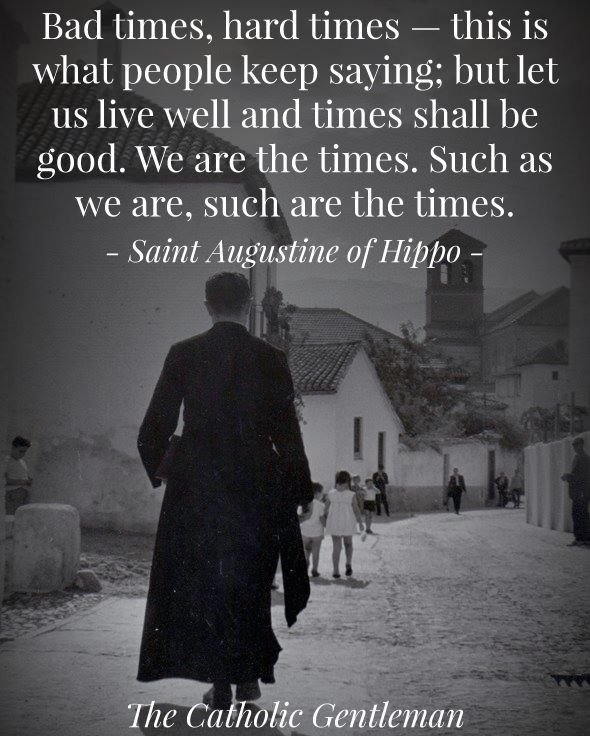
- Strengthen your relationships and improve your communication skills, especially under pressure.
- Bolster your self-esteem.
- Be confident you’ll eventually find a solution to a problem, even when one isn’t immediately apparent.
You can develop and improve these qualities of resilience at any time, regardless of your age, background, or circumstances. The following tips can help you face hardships with more confidence, better cope with these tumultuous times, and make it through to the brighter, more hopeful days ahead.
Building resilience tip 1: Practice acceptance
While we all react to stressful events in different ways, many of us try to protect ourselves by refusing to accept the truth of what’s happening. After all, by denying that you’re even experiencing a crisis, you can kid yourself that you still have some sense of control over what are usually uncontrollable events.
While denial can have some positive functions—it can give you an opportunity to come to terms with the shock of a traumatic event, for example—over time, it will just prolong your pain. Staying in denial will prevent you from adapting to your new circumstances, stop you from seeking solutions or taking action, and stifle the healing process.
Staying in denial will prevent you from adapting to your new circumstances, stop you from seeking solutions or taking action, and stifle the healing process.
Accept the situation
Change is an inevitable part of life and many aspects of the changing world are outside your individual control. You can’t control the spread of a virus, for example, the pace of social change, or how the economy behaves. While it can be tough to acknowledge, railing against events or circumstances outside your control will only drain you of energy and leave you feeling anxious and hopeless. Accepting your situation, on the other hand, can free you up to devote your energy to the things that you do have control over.
Focus on things within your control. Make a list of all the things you can’t control and give yourself permission to stop worrying about them. Instead, focus on the action that you can take. If you’re unemployed, you can’t control whether the ideal job appears in the wants ads or whether an employer will grant you an interview. But you can control how much time and effort you put into searching for work or brushing up on your skills. Similarly, if a loved one is facing a life-threatening illness, you may have to relinquish control to the medical experts, but you can still focus on providing your loved one with as much emotional support as possible.
But you can control how much time and effort you put into searching for work or brushing up on your skills. Similarly, if a loved one is facing a life-threatening illness, you may have to relinquish control to the medical experts, but you can still focus on providing your loved one with as much emotional support as possible.
Accept change by looking to your past. Looking back at examples where you’ve coped with uncertainty and change before can help you accept your current situation. Perhaps you suffered a painful breakup in the past and were eventually able to move on with your life, or you lost a job and ended up finding a better one? Examining your past successes can also help you see past the current crisis and derive some confidence that you’ll be able to pull through again.
Accept your feelings
It’s tempting to believe that the best way to get through hard times is by ignoring painful emotions and “putting on a brave face”. But unpleasant emotions exist whether you choose to acknowledge them or not. Trying to prevent your emotions from surfacing will only fuel your stress, delay acceptance of your new situation, and prevent you from moving on.
Trying to prevent your emotions from surfacing will only fuel your stress, delay acceptance of your new situation, and prevent you from moving on.
By allowing yourself to feel your emotions, you’ll find that even the most intense, upsetting feelings will pass, the trauma of these tough times will start to fade, and you’ll be able to find a path forward. Talk to someone you trust about what you’re experiencing or use HelpGuide’s Emotional Intelligence Toolkit to reconnect with your emotions.
Grieve your losses
Undergoing tough times usually involves some kind of loss. Whether it’s the loss of a loved one, the loss of a job, or the loss of your old life, it’s important you allow yourself the opportunity to grieve. Only by facing your grief—acknowledging and mourning your losses—will you be able to heal and eventually move on with your life.
Tip 2: Reach out to others
Connecting with friends and family when you’re going through tough times can help ease stress, boost your mood, and make sense of all the change and disruption. Instead of feeling like you’re facing your problems alone, you can draw strength and build resilience from having others to lean on.
Instead of feeling like you’re facing your problems alone, you can draw strength and build resilience from having others to lean on.
The people you reach out to don’t need to have answers to the problems you’re facing; they just need to be willing to listen to you without judging. In fact, what you talk about or the words used are often unimportant. It’s the human connection—eye contact, a smile, or a hug—that can make all the difference to how you’re feeling.
Prioritize relationships. Nothing carries the same health benefits as connecting face-to-face with someone who is caring and empathetic. These days, however, it’s not always possible to see friends and loved ones in person. If you’re kept apart by geography, lockdown, or travel restrictions, for example, reach out to others via phone, video chat, or social media.
Don’t withdraw in tough times. You may be inclined to retreat into your shell when you’re facing challenges in your life. You may fear being a burden to friends and loved ones or feel too exhausted to reach out. But try to keep up with social activities even when you don’t feel like it. Good friends won’t consider you a burden—they’re more likely to feel flattered that you trust them enough to confide in them.
You may fear being a burden to friends and loved ones or feel too exhausted to reach out. But try to keep up with social activities even when you don’t feel like it. Good friends won’t consider you a burden—they’re more likely to feel flattered that you trust them enough to confide in them.
Try to avoid negative people. Some friends are good listeners, kind and empathetic. Others seem to only fuel negative emotions, leaving you feeling even more stressed, anxious, or panicky. Try to avoid anyone who magnifies your problems, criticizes, or makes you feel judged.
Expand your social network. Even though relationships are vital for good mental health, building resilience, and getting through tough times, many of us feel that we don’t have anyone to turn to in times of need. But there are plenty of ways to build new friendships and improve your support network. If you know others who are lonely or isolated, be the one to take the initiative and reach out.
Tip 3: Invest in self-care
Living through tough times can be both mentally and physically draining. Constantly being in a heightened state of stress can lead to serious health problems, impact your immune and digestive systems, increase your risk of heart attack and stroke, and lead to burnout, a state of emotional, physical, and mental exhaustion.
Since the body and mind are so closely linked, investing in self-care is an important part of building resilience and getting through times of great stress. When your body feels strong and healthy so, too, will your mind.
Get enough exercise. When you’re dealing with chronic stress, you likely carry it somewhere in your body. Maybe your muscles are tense, you have back or neck pain, frequent headaches, insomnia, heartburn, or an upset stomach? Getting regular exercise not only releases powerful endorphins in the brain to improve your mood, but it can also help to ease tension in the body and counteract the physical symptoms of stress.
Practice a “mind and body” relaxation technique. Practices such as yoga, tai chi, and meditation blend deep breathing and body awareness to help you relieve stress and bring your nervous system back into balance. Try one of HelpGuide’s audio meditations to boost your physical and emotional well-being.
[Listen: Inner Strength Meditation]
Improve your sleep. When you’re facing adversity, nothing wears down your resilience like missing out on a good night’s sleep. Often, improving your daytime habits and taking the time to relax and unwind before bed can help you sleep better at night.
Eat well. There are no specific foods that can help build resilience and weather tough times. Rather, it’s your overall dietary pattern that’s important. Eating lots of processed and takeout food can take a toll on your brain and mood, sapping your energy, and weakening your immune system. A healthy diet, on the other hand—one that’s low in sugar and rich in healthy fats—can give you the energy and focus to tackle the challenges you’re facing.
Manage your overall stress levels. Taking steps to manage your overall stress can break the hold it has over your life, improve your mood, and help you build the resilience you need to hold up under pressure at this time.
Tip 4: Look for meaning and purpose
It’s easy to get overwhelmed by frightening headlines or consumed by the crisis you’re facing. But whatever your circumstances, it doesn’t have to define you as a person. You are not your crisis. By pursuing activities that bring purpose and meaning to your life, you can keep your problems in perspective, prevent them from overwhelming you, and maintain your identity.
Everyone is different so we all have different ways of experiencing purpose and meaning. Don’t limit yourself by others’ expectations; pursue activities that are important to you and add satisfaction to your life.
Give help to others. When you’re in the midst of a crisis, it’s common to feel powerless and helpless. By proactively helping others, you can regain a sense of control as well as find purpose in your life. In fact, giving support can be just as beneficial as receiving support. Try volunteering, helping others in your neighborhood, giving blood, donating to a charity, or marching for a cause that’s important to you.
By proactively helping others, you can regain a sense of control as well as find purpose in your life. In fact, giving support can be just as beneficial as receiving support. Try volunteering, helping others in your neighborhood, giving blood, donating to a charity, or marching for a cause that’s important to you.
Pursue your hobbies and interests. In turbulent times, it’s important not to cast aside interests that nourish your spirit. For many of us, it’s these things that define us as individuals and bring meaning to our lives. Whether it’s playing a sport, caring for a pet, an artistic or musical endeavor, home improvement projects, or spending time in nature, continuing to draw pleasure from your pastimes adds to your ability to cope with the stress of difficult times.
Tip 5: Stay motivated
An important part of coping with adversity and making it through tough times is to foster qualities of persistence and endurance. Tough times don’t last forever, but by their very nature they’re rarely over quickly. As you plot a road through the darkness, you need to find ways to stay motivated and persevere.
Tough times don’t last forever, but by their very nature they’re rarely over quickly. As you plot a road through the darkness, you need to find ways to stay motivated and persevere.
Deal with your problems one step at a time. If a problem is too big to deal with all at once, try breaking it down into smaller, more manageable steps. If your problem seems to have no possible solution, you can still take action by drawing up a list, researching more about the subject, or seeking the advice of a trusted friend or loved one.
Celebrate small wins. To stay motivated and positive as you navigate stormy seas in life, take a moment to savor your small successes. If you’re looking for work, for example, getting an interview isn’t as meaningful as landing a job, but it’s a sign of progress, a step in the right direction. Noting these small wins can give you a welcome break from all the stress and negativity you’re facing and encourage you to keep going.
[Read: Finding Joy During Difficult Times]
Try to maintain a hopeful outlook. While it’s difficult to stay positive and hopeful in the midst of a crisis, many of us tend to blow our problems out of proportion and make them seem even more negative than they really are. Try taking a step back and examining your situation as an outsider. Are their rays of hope that you can focus on? Instead of worrying about what you fear may happen, try visualizing what you’d like to happen instead.
Express gratitude. It may sound trite, but even when you’re experience terrible times, it’s usually possible to find one thing you can be grateful about—the love of a pet, for example, a beautiful sunset, or a caring friend. Taking a moment to acknowledge your gratitude for such small things can provide respite from the stress and really boost your mood.
Be kind to yourself. Everyone adjusts to change and upheaval differently. Don’t criticize your coping skills or beat yourself up for every mistake you make. Self-compassion is an important part of building resilience, so go easy on yourself.
Self-compassion is an important part of building resilience, so go easy on yourself.
Last updated or reviewed on March 4, 2023
Going Through Hard Times? Try These 10 Strategies
Hard times, whatever that means to you, are a common part of life. Developing coping skills can better help you get through them.
Maybe you’re experiencing a financial setback. Or someone you love might be facing a health challenge. Maybe you’ve lost your job, or an unhealthy relationship is weighing you down.
You might not be in complete control of these difficulties, but you have a choice in how they impact the way you feel.
Overcoming these challenges is possible. Mental health experts have offered 10 tips to cope with hard times:
If you’re facing a challenging time, it’s natural to feel overwhelmed.
“When faced with emotional pain or frustration, this can feel like you are going to be in it forever,” says Boston-based psychotherapist Angela Ficken. “That thought alone can increase the severity of emotions someone is feeling and make it worse.”
“That thought alone can increase the severity of emotions someone is feeling and make it worse.”
Reframing your perspective — seeing things from a new angle — can help you step away from this mindset.
“Whatever you’d say to your best friend, now say the same to yourself,” Ficken suggests. “An example of a reframe would be, ‘I know it feels like this will be forever, and I know logically it’s not. I have been through hard things before and came out OK. I know I will get through this, too.’”
“Emotions don’t go away if we ignore them. They come out later and in ways that we don’t quite understand,” explains Rachelle Heinemann, a mental health counselor in Brooklyn, New York. “The best thing to do when the going gets tough is to acknowledge your emotional experience and allow yourself to feel.”
Holding feelings in may make the situation more difficult to cope with in the long run, explains Donna Novak, PsyD, a clinical psychologist in Simi Valley, California.
“Let yourself feel all the emotions. Sadness, frustration, grief,” she suggests. “Allow yourself space to cry, hurt, and be upset.”
Sadness, frustration, grief,” she suggests. “Allow yourself space to cry, hurt, and be upset.”
Feeling and expressing your emotions is an essential part of healing, says Jennifer Weaver-Breitenbecher, a clinical psychologist in Rhode Island.
“This isn’t a time to try and be strong; that’s a fallacy. Feeling the feelings is tough but imperative,” she says. “Allow yourself to grieve or process whatever is happening.”
Most difficult situations have a possible upside or a pending end date. For example, the last day of a tough school year.
Sam Bolin, a licensed clinical social worker in Linthicum Heights, Maryland, tells Psych Central that focusing on the future positives “is an effective strategy for individuals who are going through a hard time.”
Bolen recommends positive projection. This refers to focusing on the possible positive outcomes of a situation.
He suggests using guided meditation or general meditation for at least 5 minutes every day. While meditating, he says, try to focus on one or more desired outcomes for the situation.
A positive projection requires turning positive intention into words. For example:
- The survival rate for my illness is 85%, and if I follow my treatment plan, I can be in that group.
- There aren’t many job openings, but I have a great resume and a strong track record.
- The publisher rejected my manuscript, but this is a typical part of the process, and it means I’m trying.
“As you become better at staying focused in your meditation […] the detail of your process will become more specific to accomplishments that contribute to improving your life,” Bolen says.
While it might feel like the best response to a difficult situation is to take charge, sometimes letting go can help preserve your mental health.
“One way to help yourself get through hard times is to let yourself off the hook for things,” says Billy Roberts, a mental health therapist in Columbus, Ohio. “Ironically, many people are even harsher critics of themselves when times are harder or when they are under a lot of stress. ”
”
Gina Marie Guarino, a mental health counselor in New York City, recommends practicing acceptance.
“Hard times come with challenges that are out of your control, and the harder you try to control the outcome of a difficult time, the more stress you are inflicting onto yourself,” she says.
While knowing when to let go is helpful, so is working on gaining “a sense of meaning and purpose,” Roberts tells Psych Central. “A sense of meaning and forward momentum helps keep us energized and hopeful.”
The trick is to identify the positive amid a crisis that’s out of your hands.
A job loss might mean you’ve got more time to help your children with their homework. Or maybe you’re motivated to make healthy lifestyle changes in response to a new medical diagnosis.
Even if meaning and purpose aren’t immediately obvious, you can consider making a point to look for them in everyday moments.
Rituals can anchor you in a time of change and uncertainty.
Healthy rituals could include:
- adding a regular mindfulness practice
- committing to daily morning workouts
- practicing different relaxation techniques
- scheduling coffee with a friend once a week
- journaling every night
- getting 15 minutes of sunlight or fresh air every day
In a romantic relationship, rituals can also provide some comfort during trying times.
“Couples need to proactively protect their relationship with healthy rituals like date nights without the kids, time not talking about work, and things that help them stay connected and balanced,” explains William Schroeder, co-founder of Just Mind Counseling in Austin, Texas. “It is beneficial to notice what helps you get back on track.”
Your support system is all those people who care about you and can be there for you to offer practical help, a word of advice, or encouragement.
“It is vital to focus on one’s relationships as these people can be very helpful,” says Bryan Bruno, a psychiatrist in New York City. “It can feel isolating to be going through a hard time, but surrounding yourself with a trusted support system is very necessary.”
Feeling connected can boost your mood and help you cope with challenging situations.
“The most important factor that will determine how we get through hard times will be whether or not we feel connected and supported,” says Heinemann. “Go ahead, call or text that friend. Sit with them saying nothing or saying everything.”
“Go ahead, call or text that friend. Sit with them saying nothing or saying everything.”
If you rather find support from other sources, consider joining a support o community group.
“There are support groups available for individuals experiencing hardships,” offers Novak. “By joining a community, you will not be alone, and you will not feel alone. You will be around people who understand and support you.”
When times are tough, finding a healthy outlet to express yourself can make coping easier.
“Find a healthy way to express yourself and your emotions. This could be through journaling, having a close friend or family member to talk to, or practicing self-care,” suggests Novak.
Heinemann agrees that journaling is an effective stress-management tool. “Journaling is a great way to get thoughts out of your head and brings a sense of internal organization. You can follow prompts or write free form.”
Identifying what has helped you cope in the past can support you in your current situation.
“Do what you know works,” recommends Weaver-Breitenbecher. “Like meeting friends for dinner? Do that now. Feel good when you volunteer at the local animal shelter? Go read to some dogs. Need to focus on your physical health in order to regroup? Get to the gym.”
Denver-based counselor Amanda Conroy suggests being intentional in gratitude.
“Write down all you are thankful for and what is going well in your life,” says Conroy. This exercise will give you hope and uplift your spirit. […] Engage in activities that are fun and joyous. Be mindful and sit with the positive feelings when engaging in these activities.”
Schroeder recommends taking challenging situations one step at a time. “Breaking down significant events into smaller, more manageable parts is an essential and adaptive part of survival. We have to find those coping techniques that are natural and healthy for us to survive.”
A mental health professional can help you sort out your feelings and develop coping strategies. They can also become a safe space where you feel supported while working on an actionable plan to get through hard times.
They can also become a safe space where you feel supported while working on an actionable plan to get through hard times.
Going through hard times is part of the human experience. Even if they feel challenging, they won’t be permanent most of the time. If they are, there are ways to cope with them effectively.
If you’re experiencing a tough time, consider changing your perspective to focus on what aspects of the situation you can control to feel better.
Reaching out to the community or loved ones for support, adding healthy rituals to your ritual, letting yourself feel all the emotions, and seeking professional help can all be important steps when navigating these difficult times.
Emergency Fund "In difficult times"
Consent to the processing of personal data
The user, leaving an application, subscribing, commenting, requesting feedback, registering or performing other actions related to entering their personal data on the https website ://www. allianceforanimals.ru, accepts this Consent to the processing of personal data (hereinafter referred to as Consent), posted at https://www.allianceforanimals.ru/personal-data-usage-terms/.
allianceforanimals.ru, accepts this Consent to the processing of personal data (hereinafter referred to as Consent), posted at https://www.allianceforanimals.ru/personal-data-usage-terms/.
Acceptance of the Consent is confirmation of the User's consent to all points of the Consent. The user gives his consent to the organization "Interregional public organization in the field of animal protection "Alliance of Animal Defenders"", which owns the website https://www.allianceforanimals.ru to process his personal data with the following conditions:
The user agrees to the processing of his personal data, both without the use of automation tools, and with their use.
Consent is given to the processing of the following personal data (not being special or biometric):
• last name, first name, patronymic;
• email address(es);
• other data provided by the User.
The user's personal data is not publicly available.
1. The purpose of processing personal data is to provide full access to the functionality of the site https://www. allianceforanimals.ru.
allianceforanimals.ru.
2. The basis for the collection, processing and storage of personal data are:
• Art. 23, 24 of the Constitution of the Russian Federation;
• Art. 2, 5, 6, 7, 9, 18–22 of the Federal Law of July 27, 2006 No. 152-FZ “On Personal Data”;
• Art. 18 of the Federal Law of March 13, 2006 No. 38-FZ "On Advertising";
• Charter of the organization "Interregional public organization in the field of animal protection "Alliance of Animal Defenders"";
• Personal data processing policy.
3. In the course of processing personal data, the following actions will be performed with personal data: collection, recording, systematization, accumulation, storage, clarification (update, change), extraction, use, transfer (distribution, provision, access), depersonalization, blocking, deletion, destruction.
4. Transfer of personal data hidden for general viewing to third parties is not carried out, except as provided by the legislation of the Russian Federation.
5. The user confirms that the personal data specified by him belongs to him personally.
6. Personal data is stored and processed until the liquidation of the organization "Interregional public organization in the field of animal protection "Alliance of Animal Defenders"". The storage of personal data is carried out in accordance with the Federal Law No. 125-FZ "On archiving in the Russian Federation" and other regulatory legal acts in the field of archiving and archival storage.
7. The user agrees to receive informational messages from the site https://www.allianceforanimals.ru. Personal data is processed until the User unsubscribes from receiving information messages.
8. The Consent may be withdrawn by the User or his legal representative by sending the Withdrawal of Consent to the e-mail – [email protected] marked “Withdrawal of consent to the processing of personal data”. If the User withdraws consent to the processing of personal data, the organization "Interregional public organization in the field of animal protection "Alliance of Animal Defenders"" has the right to continue processing personal data without the consent of the User if there are grounds specified in paragraphs 2 - 11 of part 1 of article 6, part 2 of article 10 and part 2 of article 11 of the Federal Law No. 152-FZ "On Personal Data" dated July 27, 2006. Deletion of personal data entails the impossibility of access to the full version of the functionality of the site https://www.allianceforanimals.ru.
152-FZ "On Personal Data" dated July 27, 2006. Deletion of personal data entails the impossibility of access to the full version of the functionality of the site https://www.allianceforanimals.ru.
9. This Consent is indefinite, and is valid all the time until the termination of the processing of personal data specified in clauses 7 and 8 of this Consent.
10. Location of the organization "Interregional public organization in the field of animal protection "Alliance of Animal Defenders"" in accordance with the constituent documents: 109341, Moscow, st. Pererva, d. 54, apt. 2.
They will come to the rescue in difficult times - News of municipalities of the Sverdlovsk region
Slobodo-Turinsky district December 29, 2021 13:24 The editorial office of the Kommunar newspaper
On the eve of the New Year, I would like to tell the readers of Kommunar about Albert Nikolaevich TOLAKH. This man is respected both among his fellow villagers and in the large team of the district hospital, which he earned with his attitude to business, attention to those who turn to him for help and just advice.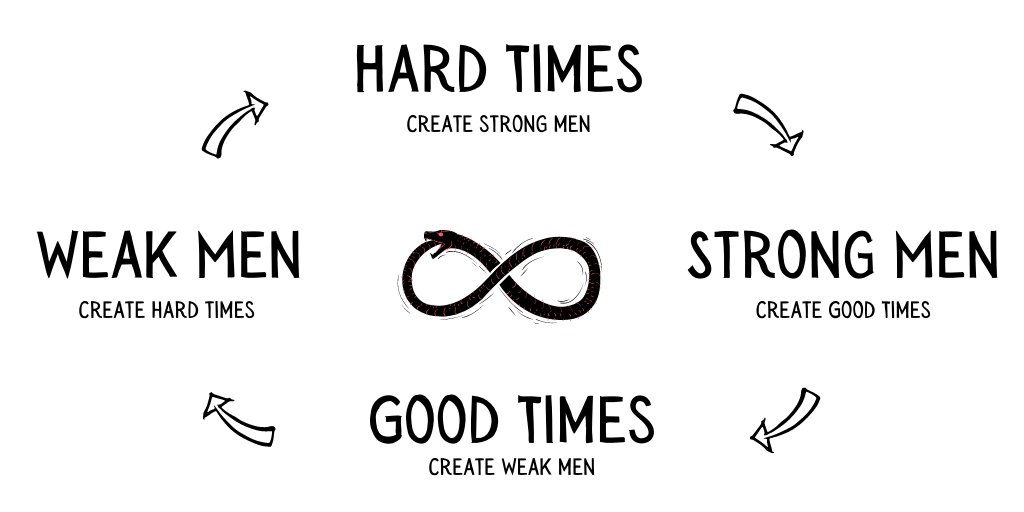
He was born in the small village of Bitki in Tatarstan. Soon the family moved to Pervouralsk, where Albert spent his childhood. When he went to 9class, had to choose a specialty or profession in a training and production plant. So it was in those years: each graduate, along with a certificate, received a certificate of the received specialty. Albert was a little late in choosing, and all male specialties were distributed. And he got only one, already without a choice - a medical worker. After graduating from school, without hesitation, he entered the Sverdlovsk Medical School. There he met his future wife Elena Viktorovna. After graduating from college, young specialists came together to Turinskaya Sloboda.
Albert Nikolaevich was invited to work in the Ust-Nitsinsky dispensary. A year later, he quit - he did not like the service. He got a job as a doctor in SPTU. But he still wanted something more. And the wish came true: in the fall of 1998, he was taken to the district hospital as an ambulance paramedic. ¬
¬
- It is hardly necessary to explain to anyone what an ambulance is, he says. “But I will say it anyway. It is clear that it must be fast, but also sufficiently qualified, and for each case, for any patient. Therefore, the paramedic or emergency doctor must be a generalist and sufficiently qualified. I will never forget one of my first aptitude exams. A call was received that a badly pregnant woman in Pervomaisky Lane. We quickly checked: this address is not registered. We thought it was a mistake and set off together with the driver. It turned out that the pregnant daughter came to her mother from Ukraine. I tell her: "Get ready, let's go to the hospital." She silently lifted the hem of her dress. And I realized that it was too late to go. This is how I gave birth for the first time in my life. Then they told me that they did everything right. And if I had been scared at that moment, the child could have been lost ...
Albert Nikolayevich told me another incident: “The police reported an accident near the village of Andronova. It's May, the fields are already bare, and the sides of the road are full of water. The car overturned Will come to the rescue in a difficult moment twice and went halfway under the water. The doors are jammed. The driver and I, having reached the car waist-deep in icy water, broke the glass, I gave an injection to the victim in the accident, and then the montages began to open the doors. They barely pulled the half-dead driver out of the car. We were met at the hospital, and everything ended well ... ".
It's May, the fields are already bare, and the sides of the road are full of water. The car overturned Will come to the rescue in a difficult moment twice and went halfway under the water. The doors are jammed. The driver and I, having reached the car waist-deep in icy water, broke the glass, I gave an injection to the victim in the accident, and then the montages began to open the doors. They barely pulled the half-dead driver out of the car. We were met at the hospital, and everything ended well ... ".
For more than 20 years A.N. Tolakh works as a paramedic, half of them as the head of the emergency medical department, in whose team there are 35 people, of which 20 paramedics, including one doctor, 10 drivers, 5 dispatchers. A large team, different people, but all united by one noble goal - to save people's lives. The most important thing for Tolah is not to allow any failures in work. He himself is also constantly on duty, like everyone else, he also constantly goes to the call. I asked him: are there many calls per shift? Is there time to take a break? ¬ Call to call strife, - answers. “Sometimes you’ll be free in half an hour, but it also happens otherwise. Somehow we arrived at a call to Reshetnikova, and there the woman had a stroke. First aid was provided and immediately, as they say, flew to Irbit. Only then did they calm down that they had time on time.
I asked him: are there many calls per shift? Is there time to take a break? ¬ Call to call strife, - answers. “Sometimes you’ll be free in half an hour, but it also happens otherwise. Somehow we arrived at a call to Reshetnikova, and there the woman had a stroke. First aid was provided and immediately, as they say, flew to Irbit. Only then did they calm down that they had time on time.
Albert Nikolaevich works, as they say, at full strength. But he does not focus only on his work. He finds time to go in for sports, involves young people in this, working with the guys in the Greco-Roman wrestling section of the Youth Sports School. By the way, he himself began to engage in this sport from elementary grades and can be a good teacher, because in his youth he fulfilled the norm of a candidate for master of sports. Now guys from both schools of the regional center are engaged in the section. Those who achieve the best results take part in city and regional tournaments that take place in Tyumen.